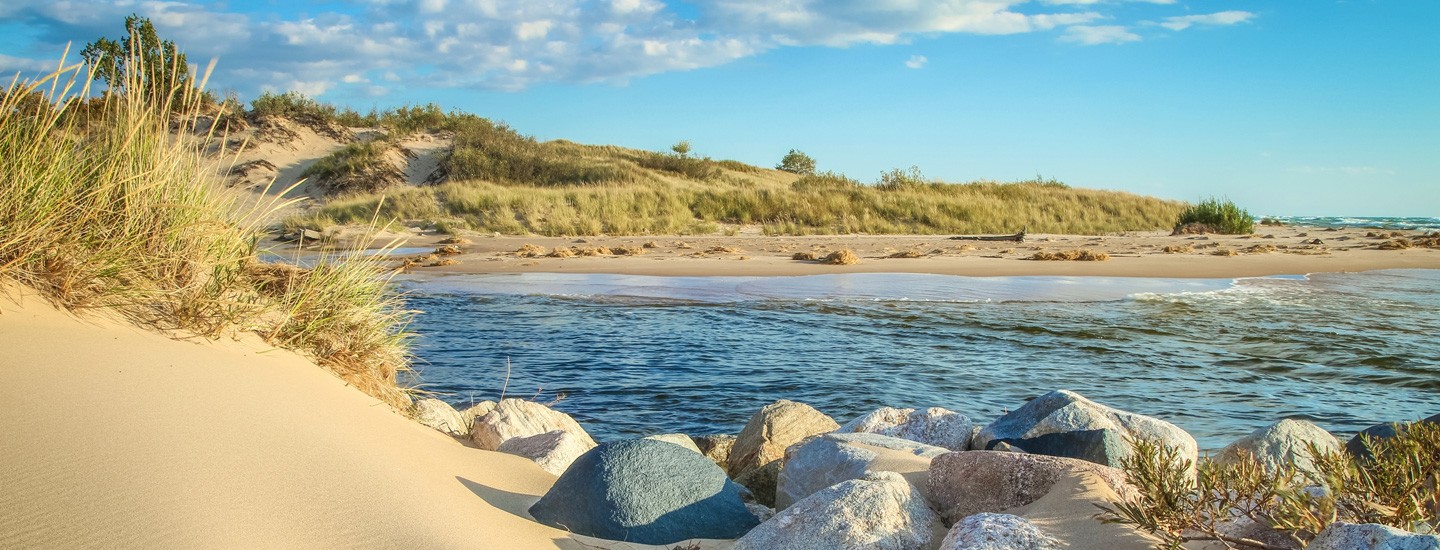
On April 6th, the Michigan Supreme Court issued a ruling to protect beach access in the Great Lakes. Lakeshore property owners in Michigan who open up their land to public coastal recreation will continue to be protected under the state’s Recreational Land Use Act (“RUA”), following the Court’s decision in the “Inn at Watervale” case. In January, the Surfrider Foundation, on behalf of its Lake Michigan Chapter and represented by the Great Lakes Environmental Law Center, filed an amicus curiae (“friend of the court”) brief with the Michigan Supreme Court in favor of public beach access, and a broad interpretation of the RUA. The lower court had inappropriately held that playing on the beach is not an activity that comes within RUA’s protective scope. The RUA generally protects landowners from being liable if non-paying persons are injured while recreating on their property, unless caused by gross negligence or willful and wanton misconduct. As such, the RUA provides an incentive for landowners to open up their lands for public recreation, including along the shores of Lake Michigan, Lake Huron, and Lake Erie.
For background, the RUA provides in relevant part:
“Except as otherwise provided in this section, a cause of action shall not arise for injuries to a person who is on the land of another without paying to the owner, tenant, or lessee of the land a valuable consideration for the purpose of fishing, hunting, trapping, camping, hiking, sightseeing, motorcycling, snowmobiling, or any other outdoor recreational use or trail use, with or without permission, against the owner, tenant, or lessee of the land, unless the injuries were caused by the gross negligence or willful and wanton misconduct of the owner, tenant, or lessee.” (emphasis added). (Michigan Compiled Laws § 324.73301)
As Surfrider argued, this broad statute plainly includes outdoor coastal lakeshore recreation, like walking along or playing at Michigan’s lake beaches. The Michigan Supreme Court agreed with Surfrider’s position, holding that the beach activities at issue – splashing around, building sand castles, and throwing stones in the water – fall within the plain meaning of RUA’s general phrase “any other outdoor recreational use.”
The Court reasoned as follows:
“[The lakeshore recreation at issue] occurred outdoors and w[as] done for refreshment or diversion, and consequently w[as] recreational. See Merriam-Webster’s Collegiate Dictionary(11th ed) (defining “recreation” as, among other things, “a means of refreshment or diversion”). We reject the Court of Appeals’ limitations on the scope of the general category fashioned by using the ejusdem generiscanon. We do not agree that all of the listed activities involve any particular heightened degree of physical intensity or inherent risk. And even if they did, beach play would be encompassed, as it is at least as intense and risky as “sightseeing” or “fishing,” two of the listed activities. Nor do we find any need to define what limitations any other common characteristic of the RUA’s enumerated items might impose on the general phrase, because the parties have identified no such characteristic that would limit the scope of the general category in a manner that would exclude beach play. Therefore, because the activities here fit the plain meaning of “any other outdoor recreational use” and are not excluded by any interpretation of the RUA’s general provision under the ejusdem generis canon, we conclude that the RUA applies.”
“The court was right to hold that the statute was written to greatly expand a private landowner’s ability to allow members of the public to use private property to access the beach and water for recreational activity,” says attorney Oday Salim with the Great Lakes Environmental Law Center, who represented Surfrider in this matter. The Michigan Supreme Court’s decision is good news for Michigan beach access and for the millions of people who flock to Michigan’s lakeshores for recreational activities each year.
The Surfrider Foundation was generously represented pro bono in this matter by Oday Salim at the Great Lakes Environmental Law Center, along with support from attorneys Noah Hall and Nick Schroeck, and students from the Wayne Law Transnational Environmental Law Clinic.
